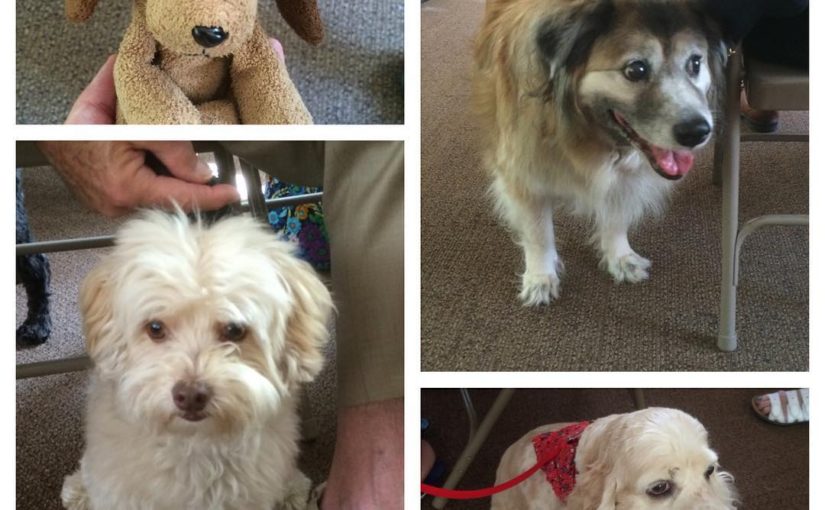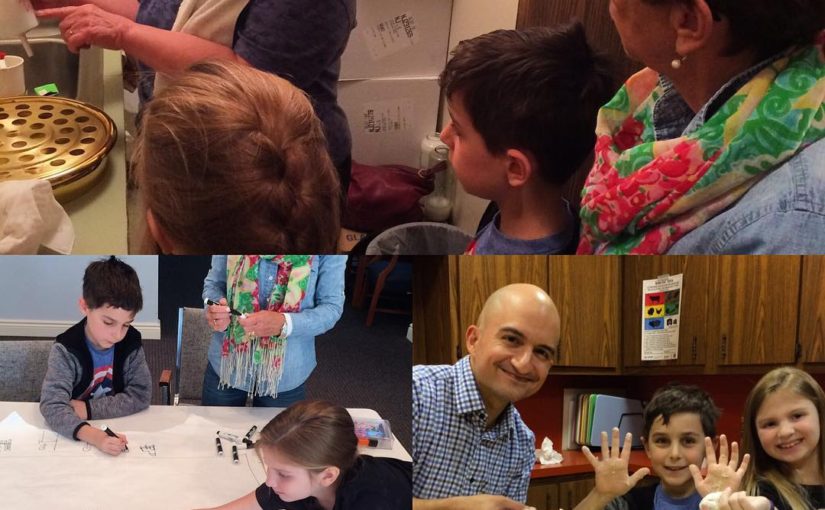‘I still have many things to say to you, but you cannot bear them now. When the Spirit of truth comes, he will guide you into all the truth; for he will not speak on his own, but will speak whatever he hears, and he will declare to you the things that are to come. He will glorify me, because he will take what is mine and declare it to you. All that the Father has is mine. For this reason I said that he will take what is mine and declare it to you.
John 16:12-15.
My sermon from Trinity Sunday (May 22, 2016) on John 16:12-15. At the 9 am worship, we baptized an adult (my first adult baptism!) Listen to the recording at the bottom of the page or read my manuscript below.
****************************
So one of the joys living in Northern New Jersey offers, is that driving here is always an adventure. Yesterday, I was on Linwood Avenue, heading to Valley Hospital for a visit. Traffic was light, the sky was gray, and nothing seemed out of the ordinary. Ahead of me, about 40 feet away, was a large flatbed truck, colored black and red, with a small forklift attached to the back. The truck looked nearly empty, with only a few pallets of 50 lb bags of sand left on it. So nothing strange was happening, and my mind started to drift towards my upcoming visit. But, suddenly, the truck in front of me jolted. It shook. And, for half a second, it swerved into oncoming traffic. The driver quickly got the truck back into the right lane. But in that correction, something happened to the cargo. Several large bags of sand flew off the truck, barely missing the cars that were coming towards us. White puffs of dust and sand filled the air as the bags burst as they hit the ground. I silently thanked God that no one was hurt and everyone dodged what came down. But the truck didn’t realize what happened. He kept driving. And as he drove, bags kept falling. Every fifty feet or so, another bag would hit the pavement. After a bit, the driver finally realized he was losing cargo. He pulled over, put on his hazards, and stepped out of his truck with a giant roll of saran wrap to secure the load. The crisis averted, I passed him by, and went on my way.
Later, after my visit at the hospital was over, I drove back over the same road. The truck was long gone and most of the bags of sand that hit the road were gone too. But some remained. And the sand, the sand was still there, every fifty feet or so. It looked so symetrical, so intentional, that it reminded me of an industrial version of Hansel and Gretel, were this truck dropping bags of sand to find its way back home. And each bag, as it landed on the ground, made a mark that couldn’t easily be forgotten. That mark, that impact – is what Jesus is getting at in these four verses from John. Jesus is sharing these words during his final discourse – his final sermon before his arrest, trial, and death. He’s preparing his disciples for what’s next, for what life will be like once the Cross comes. These disciples had literally walked with Jesus. They ate meals with him, shared hardships, and made memories together. When Jesus called these disciples by name to follow him – Jesus wasn’t seeking a short term commitment. He, and his followers, are together for the long haul. So Jesus begins today’s text with a promise. He promises that, no matter what comes next, Jesus has more to say. Their experience of God isn’t over just because Jesus no longer walks, talks, and eats with them like he used to. Their experience of God isn’t finished even though their story is going to change. Jesus promises to keep speaking and that he will be heard. And as his disciples live their lives – wherever they go, and through whatever happens next – Jesus’ voice in their story will not be silent. God is still speaking. God is still caring. And, above all, God is, through the Spirit of truth, still guiding. God looks at God’s people, sees their story, walks with them as they experience their lives – and in their joys and sorrows, and even when their worlds turn upside down – God is still doing what God does – and that’s love.
Now, I’m not sure the disciples, while listening to Jesus, if knew exactly what he was saying. By this point in the text, we’re already two chapters into his four chapter sermon. Jesus said a lot – and he’s still got more to say. I imagine, if I was there, it’s at this point where I probably would have started zoning out. I mean, don’t get me wrong. I’d still be there – but my eyes would do that thing where they start glazing over. My ears would hear the words but my brain wouldn’t really be listening. I bet my mind would wander, thinking about what I needed to do next or what kind of recipes were used for the meal we just had, or maybe I’d end up just kinda being blank – with no real thought in my head. But the beauty of Jesus’ promise is that his promise doesn’t depend on understanding. Jesus isn’t giving us a pop quiz here, wondering if we’ve listened to every sermon, or memorized every bible story. Jesus is, instead, pointing to our reality. He’s saying that he understands that most of us still have some life left to live. Our journey continues. Jesus isn’t asking for understanding – he’s asking for faith. He’s pointing to trust. His word, when spoken, makes a difference whether we understand it or not. We might feel like each step we take is something we do on our own but Jesus promise’s that’s it not. Even when we don’t realize it, even when we fight against it, even when we doubt, God’s promise is that we’re not going through this life on our own.
Now, one of the joys of my job as a pastor is that there are days like today where we get to see what a faith journey can look like. We, as a community, are witnesses to a Jesus who is still speaking. We get to see that this word of promise is a word that breaks into new places, into new worlds, and into new lives – with a promise of hope, of peace, and love. And even though our lives can, and do, act like there might be a flatbed truck dumping sand in front of us as we travel down the road, creating obstacles we didn’t plan for, and throwing up clouds of dust that make it impossible to see the way ahead, our road isn’t a lonely road. We might not see what comes next – but God sees us, right as we are. And God knows the way through. Jesus doesn’t promise that these obstacles, these hardships, these bags of sand will no longer head our way once we believe or are baptized. We still have a life to live. But Jesus does promise that through everything, God is there, speaking, and guiding. Jesus promises that we are worthy to be loved. And he declares that we are.
[Now Robert, I know that you have plenty of life left to live. And I know, through our conversations, that there have been plenty of bags of sand thrown your way. But, I honestly believe, that God has been with you in all things. Your journey to this place, to this font, to Jesus Christ, is a journey where your faith and your story are intertwined. And, like Hansel and Gretel, those bags of sand tossed your way became moments where God spoke to you, leading you home. Today doesn’t mark your journey’s end. It marks a new beginning. Jesus still has many things to say to you. Jesus still has many things to say to all of us. We all have a faith-filled life to live. We all have love we can give. We all have a hope we’re called to proclaim. Because we are part of the body of Christ. We live in the world God made. The Spirit of truth that led Robert to the water is the same Spirit that leads all of us to discover the word God is speaking. And this word isn’t a word only meant for you or me. It’s a word that, through us, is meant for all the world to see. ]
[Today, at the 9 am service, an adult, Robert, was baptized. Now, one of the joys of my job, is walking with people in their faith – and watching as God does what God does. Through my many conversations with Robert, I heard his story. I saw his life. I witnessed the parts of his life where obstacles, and dust, and bags of sand were thrown at him. But, through all these things, God was there. God still spoke. And like Hansel and Gretel, each bag of sand thrown his way, became a moment when Jesus spoke to him, leading him home. Today didn’t mark the end of Robert’s journey. It marked a new beginning. A new beginning we all share because Jesus still has many things to say to each of us. We all have a faith-filled life to live. We all have love we can give. We all have a hope we’re called to proclaim. Because we are part of the body of Christ. We live in the world God made. The Spirit of truth that led Robert to the water is the same Spirit that leads all of us to discover just what word God is speaking. And this word isn’t a word only meant for you or me. It’s a word that, through us, is meant for all the world to see.]
Amen.
Podcast: Play in new window | Download


